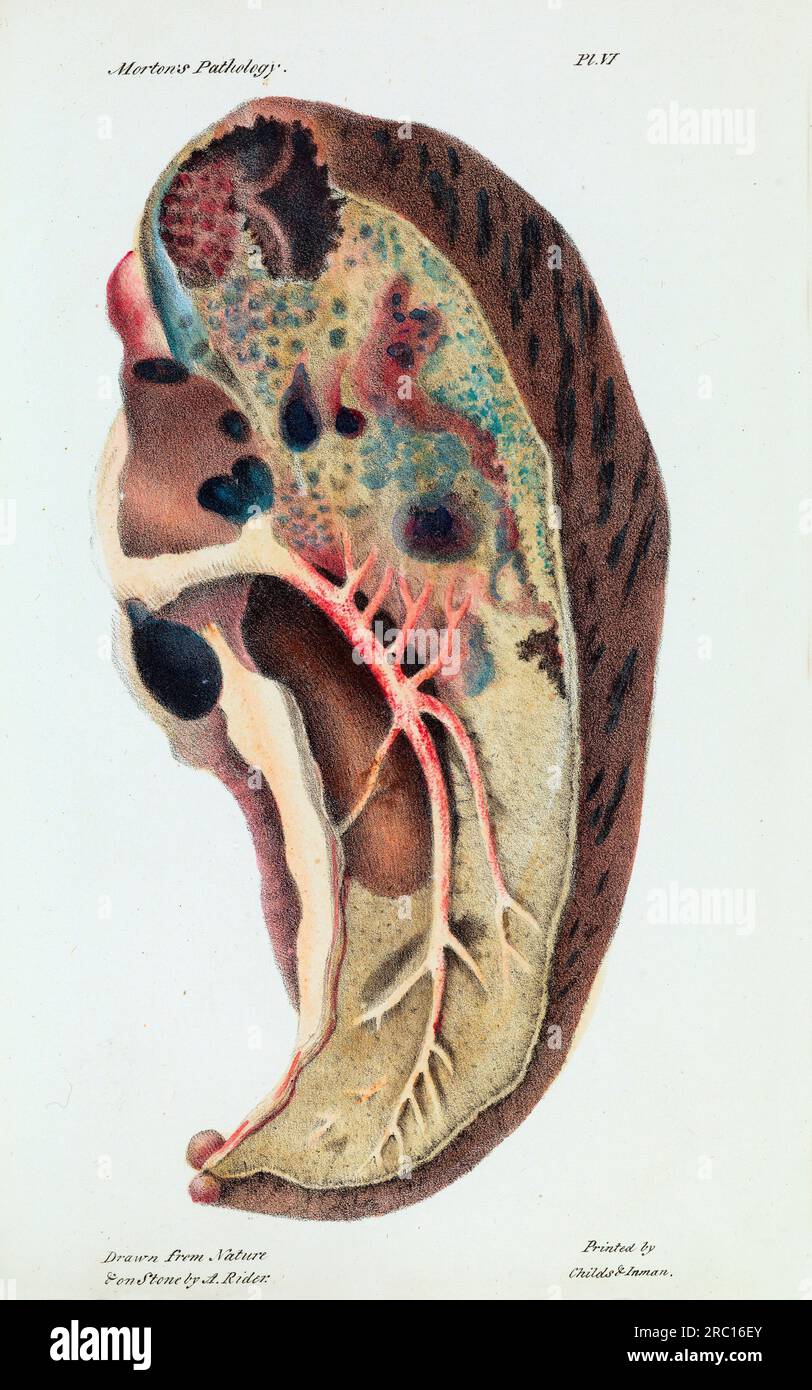Lung infected with tuberculosis, 19th century illustration

Image details
Contributor:
Science Photo Library / Alamy Stock PhotoImage ID:
2RC16EYFile size:
79.2 MB (6.5 MB Compressed download)Releases:
Model - no | Property - noDo I need a release?Dimensions:
4159 x 6656 px | 35.2 x 56.4 cm | 13.9 x 22.2 inches | 300dpiDate taken:
6 July 2023Photographer:
Wellcome Images/Science Photo LibraryMore information:
Illustration of a left lung infected with tuberculosis. Tuberculosis (TB) is a bacterial infection that usually affects the lungs but can affect other body tissues. It causes inflammation and scarring in the lungs, leading to tissue damage. Here, the lower potion of the lung shows infiltration with a gelatinous substance (beige-grey). The centre contains a large abscess and the top contains a cavity surrounded by gangrene. The pleura (membrane lining the lungs, right) is thickened and inflamed. Commonly called consumption in the 1800s, TB was a widespread cause of death during this period before the invention of vaccines (1921) and antibiotics (1943). Published in 'Illustrations of pulmonary consumption' by Samuel George Morton in 1834.